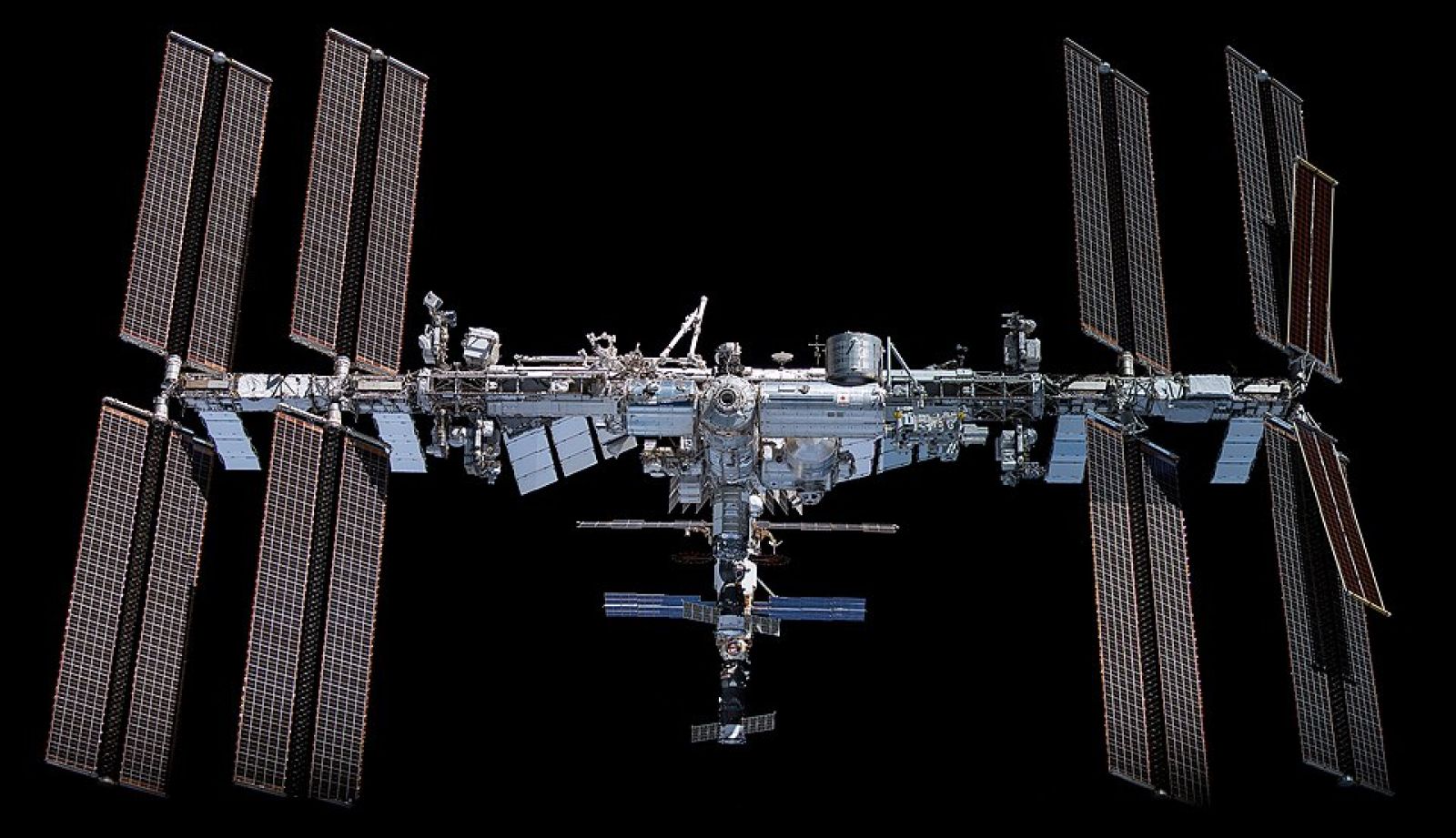Follow us on Google News (click on ☆)
The effects of microgravity on the human body are well-documented, ranging from eye deformation to limb swelling. These changes, while problematic for astronauts, open promising avenues for studying diseases like cancer in an environment where cells behave differently.

The International Space Station (ISS).
Image NASA
Researchers are exploiting microgravity to accelerate the growth of cancer cells, allowing real-time observation of their development. This approach could revolutionize cancer screening and treatment by providing faster and more accurate results than on Earth.
Advances in this field could also benefit astronauts, who face increased cancer risks due to cosmic radiation. Understanding cellular mechanisms in microgravity offers clues to protect crews on future long-duration space missions.
The use of microgravity for pharmaceutical research represents another major breakthrough. Drugs like pembrolizumab show enhanced properties in space, paving the way for more effective administration methods.
Despite this progress, numerous obstacles remain, including the need to reduce space mission costs to make these treatments accessible. The planned end of the ISS in 2031 adds urgency to this research, pushing scientists to maximize discoveries in the coming years.
How does microgravity affect cancer cells?
Microgravity alters cell structure, allowing cancer clusters to grow in three dimensions. This accelerated growth facilitates the study of tumor mechanisms and testing of new therapies.
Cells in microgravity show changes in their microtubules, proteins essential to their structure. These alterations can lead to irregular cell division, increasing cancer risk but also providing targets for treatments.
Researchers are exploiting these modifications to develop more sensitive screening tests. By understanding how cancer cells respond in microgravity, they hope to identify early disease markers.
This approach could also enable personalized treatments by adapting therapies based on cell response in space.
What are the challenges of medical research in space?
Space medical research faces technical and financial hurdles. The high cost of space missions limits access to orbital laboratories like the ISS.
Space conditions such as cosmic radiation can interfere with experiments. Scientists must therefore design adapted protocols to ensure result reliability.
The limited duration of space missions also imposes constraints. Researchers must optimize experiments to obtain meaningful data within tight deadlines.
Despite this, microgravity's unique advantages continue to attract scientists, motivated by the potential for discoveries benefiting both Earth and space medicine.